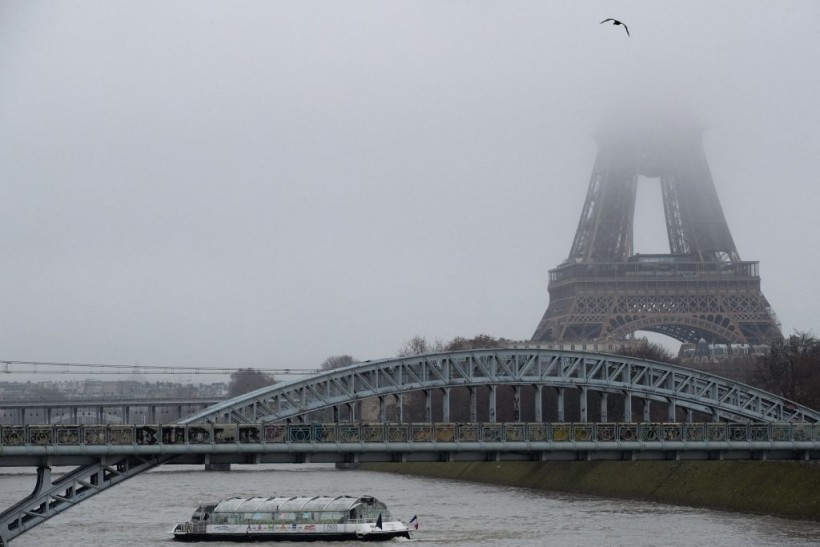A new study claims that half of the ancestry in Great Britain was almost displaced from their original lineage due to a massive migration activity between France, England, and Wales. The migration is theorized to have taken place around 3,000 years ago, back when the bronze age was at its height.
The migration from France to Great Britain was analyzed through DNAs collected from 793 individuals that had lived from the bronze age. The data were collected from the remains of people scattered in Britain and mainland Europe regions. According to the findings of the sequencing, there had been a huge mixup of migrants present in the continent, infiltration ancestries in the southern British regions. Collectively, these people were identified to have come from and go back from a country known as France.
French Ancestry in Bronze Age Great Britain

A bateau mouche is seen on the Seine river near the Eiffel tower in the fog in Paris on December 7, 2021
Although there were a series of migrations that took place 3,000 years ago, the migrants in question could not surpass the significant number of the British population. Hence, the original ancestry in Great Britain remained along with a new set of groups hailing from France. This maintained the strong foundation of peaceful, diverse communities in Europe that can be observed until today.
The new migrants could fill half of the original ancestry in England and Wales during the bronze age period, sometimes between 1000 BC to 875 BC. According to the study's authors, these diverse combinations of groups were intense and sustained, paving the way to cultural history and the greatest advantages yet in the ancient era.
There were many ancestral roots in Europe that are still unidentified. On the other hand, stronger evidence has surfaced, and surprisingly, the clues pointed towards the community present in modern-day France.
The findings were based on the ancient remains in towns such as Lechlade in Gloucestershire, Amesbury in Wiltshire, Scotland's Ulva Cave, and Brighton's Ditchling Road. The DNA harnessed from these specified places was compared with the DNA information extracted from bronze age people buried in mainland Europe.
ALSO READ: 326-Million-Year-Old Car-Sized Millipede Is The World's Largest Arthropod, Study Says
From France to England and Wales: Replacing Half of Great Britain's Original Population
Although there was conclusive evidence of the specific groups that migrated to Great Britain, the authors noted that the reason behind their journey and the total number of the migrated population remains unsolved.
The study of the bronze age migration of ancient French groups to England and Wales was made possible through the collaborative effort of evolutionary biology and archaeology researchers, led by Harvard Medical School, University of York, and the University of Vienna.
University of York's Department of Archaeology expert Ian Armit said in a DalyMail report that experts collectively theorize the middle to bronze age as the most progressive timeline in ancient history. According to the expert, the era served as a starting point of shared ideologies, trading, and intense community contacts in Britain and the greater Europe.
The experts first thought that the long-distance mobility present during the bronze age was only limited to certain individuals of society. But contrary to popular belief, DNA records showed not a few but hundreds of people moving across the Europa. The migration between France, England, and Wales was also suspected as the main reason behind the change of course in cultures, trades, combined genetics, and diverse family groups in Great Britain today. The study was published in the journal Nature, titled "Large-scale migration into Britain during the Middle to Late Bronze Age."
RELATED ARTICLE: Brutal Blood Eagle Ritual from Viking Legends Is Anatomically Possible, Result to Immediate Death
Check out more news and information on Archaeology in Science Times.










!['Cosmic Glitch' in Einstein's Theory of General Relativity Could Be Explained in This New Scientific Tweak [Study]](https://1721181113.rsc.cdn77.org/data/thumbs/full/53435/258/146/50/40/cosmic-glitch-in-einsteins-theory-of-general-relativity-could-be-explained-in-this-new-scientific-tweak-study.jpeg)



